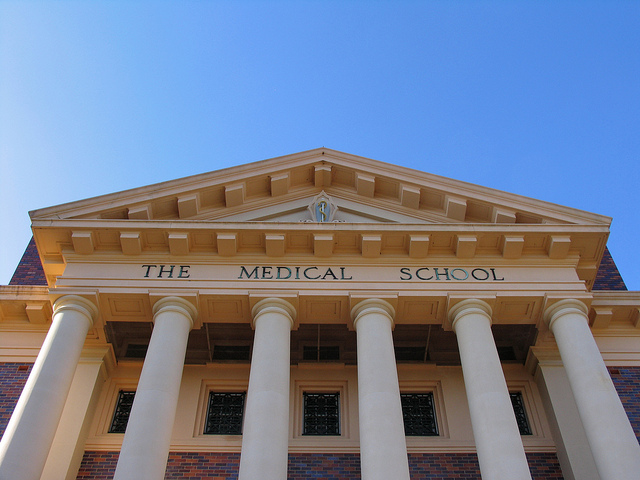
Just this past December, the D.C. Council Committee on Health and Human Services voted unanimously to approve the LGBTQ Cultural Competency Continuing Education Amendment Act of 2015 (B21-168). This new bill, if passed, would require health care professionals to receive continuing education on how best to treat LGBTQ populations. More specifically, this bill would require medical professionals licensed in D.C. to take two credits of cultural competency training related to patients who identify as LGBTQI.
The support behind this bill is an acknowledgment of the limitations of medical school curricula, and of the importance of continuing education for health care practitioners. And the passing of this bill in particular would be a boon for LGBTQI populations, a group that—according to research—is consistently marginalized in their attempt to acquire quality health care.
According to a 2010 paper published in the AMA Journal of Ethics, for instance, many LGBTQI individuals delay or avoid medical treatment for fear of encountering bias in health care settings. Others seek treatment, but are turned away. Still others get the sense that medical practitioners perhaps feels uncomfortable working with them.
If this continuing education act were passed, it could make a real impact on these dispiriting trends. After all, a large contributor to these types of experiences seems to be an insufficient level of knowledge when it comes to LGBTQI patients, stemming from insufficient education on how best to manage their health care needs. One 2011 survey of medical school deans in the United States and Canada, published in the Journal of the American Medical Association, found that students get only five hours of LGBT-related training over the course of four years of medical school.
Of course, this isn’t the only subject matter that tends to slip between the cracks. Many topics are passed over in favor of those that are considered more essential. This includes sexuality in general. Which can be a problem when one decides to pursue a profession in which sexuality is an essential component.
In an article published in the Journal of Sexual Medicine in 2008, survey responses showed that the majority of medical students (75.2 percent) felt that taking sexual history would be an important part of their future careers, yet only 57.6 percent felt adequately trained to do so. In addition, 68.8 percent felt that addressing and treating sexual concerns would likely be an important part of their careers, yet only 37.6 percent felt adequately trained to do so.
A more recent piece resulting from a summit on medical school education in the area of sexual health, also published in the Journal of Sexual Medicine, provided further information that still found educational offerings lacking. The authors of this report referenced a 2003 study of 101 U.S. medical schools, wherein it was found that most medical schools provided only 3 – 10 hours of instruction on the topic of sexuality. It mentioned that, out of the 101 schools, human sexuality courses were offered in only 31 of them, and required by only 26 of the schools that responded. The authors also reported that, of the sexual health curricula that do exist, there is “little consensus about the content and skills students should master.”
There have been some attempts to improve the state of sexuality education within medical schools. In 2009, the Journal of Sexual Medicine published a study containing recommendations for improving sexual health curricula. In 2010, the International Society for Sexual Medicine education committee met to develop global standards on sexual health education in medical schools. In 2011, Public Health Reports published a piece that offered suggestions on how this lack might be improved upon. But this fight can often be an uphill battle.
After all, medical schools can’t cover everything.
Which is why continuing education can be such an important aspect of health care practitioners’ professional development.
It remains to be seen what the fate of the LGBTQ Cultural Competency Continuing Education Amendment Act of 2015 will be. The Medical Society of the District of Columbia opposes the bill, but it still stands a chance. The Signed Act, A21-0316, is now under Congressional Review, with a projected law date of April 29, 2016.
Whatever the final decision is, it may very well set a precedent for continuing education requirements going forward.
(image via Flickr)




